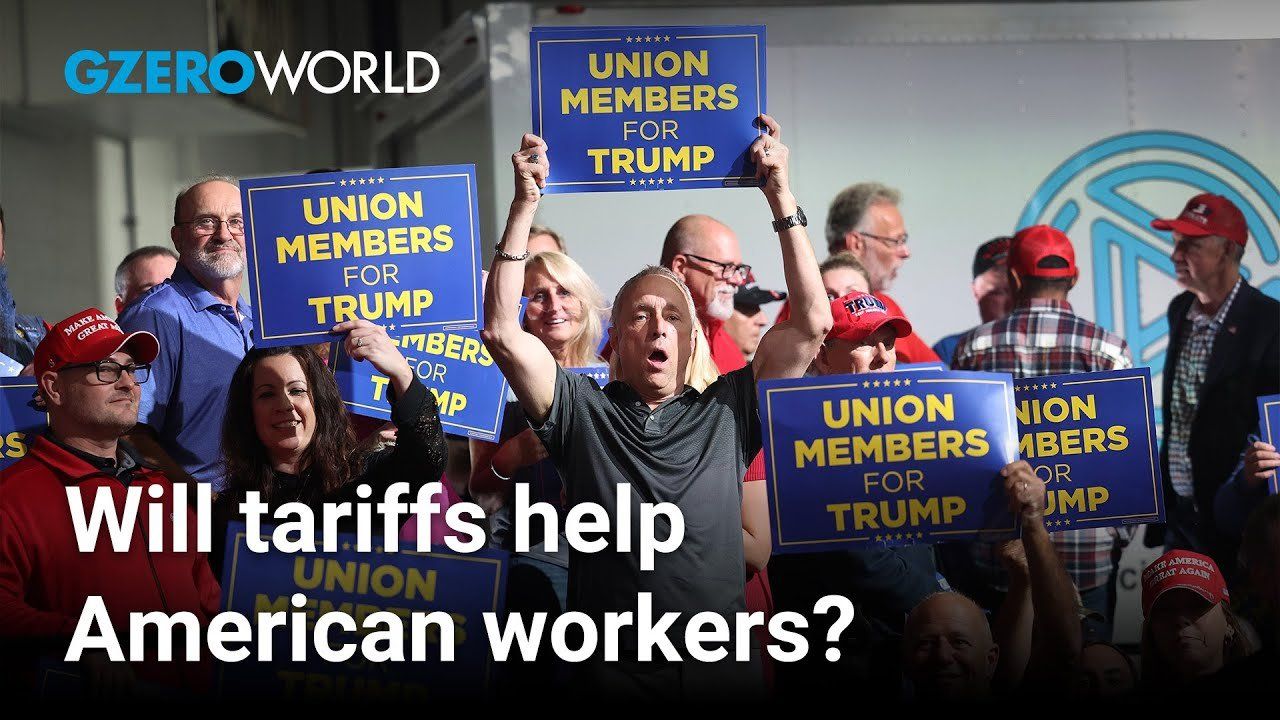December 10, 2024
President-elect Donald Trump has made no secret of his love of tariffs, vowing steep import taxes on China, Mexico, Canada, and almost every product that crosses the US border on his first day in office. Will they boost US jobs and manufacturing, as Trump promises, or lead to rising inflation, as many economists warn? On GZERO World, Oren Cass, founder and chief economist at conservative think tank American Compass, joins Ian Bremmer for an in-depth discussion about Trump’s tariff plan and the future of US-China trade policy. Cass believes that tariffs are a way to level the playing field with China, which he says “flouts international rules and any concept of a free market.” He says tariffs can help correct global trade imbalances and doesn’t believe they’ll lead to a dramatic spike in consumer prices.
“When you raise money through a tariff, you don’t set that money on fire. It’s also tax revenue,” Cass explains, “We have a $2 trillion deficit. If I told you that there was some other tax that was going to help reduce the deficit, you’d probably say that would help reign inflation in.”
Watch full episode: The case for Trump's tariffs
GZERO World with Ian Bremmer, the award-winning weekly global affairs series, airs nationwide on US public television stations (check local listings).
New digital episodes of GZERO World are released every Monday on YouTube. Don't miss an episode: subscribe to GZERO's YouTube channel and turn on notifications (🔔).
From Your Site Articles
- Kamala Harris and Donald Trump’s economic plans, compared ›
- Ian Explains: Is the US economy good or bad? ›
- The ugly truth about the US economy ›
- How’s the US economy doing right now? ›
- The economic fallout of Trump’s tariff threats ›
- Navigating global trade during uncertain times - GZERO Media ›
- Trump tariff is starting a US-China trade war - GZERO Media ›
- Larry Summers has a few thoughts about Trump's trade war - GZERO Media ›
- "We've lost enormous credibility around the world" because of tariffs - Summers - GZERO Media ›
More For You
With close ties to both the US and China, can Singapore survive in an increasingly fragmented and chaotic world? Singapore’s President Tharman Shanmugaratnam joins Ian Bremmer on the GZERO World Podcast.
Most Popular
Think you know what's going on around the world? Here's your chance to prove it.
UK Prime Minister Keir Starmer shakes hands with Chinese President Xi Jinping, ahead of a bilateral meeting in Beijing, China, on January 29, 2026.
Carl Court/Pool via REUTERS
This week, Prime Minister Keir Starmer became the first UK leader to visit China in eight years. His goal was clear: build closer trade ties with Beijing.
Igmel Tamayo carries charcoal to sell on the side of a road for use as cooking fuel in homes, after US President Donald Trump vowed to stop Venezuelan oil and money from reaching the island as Cubans brace for worsening fuel shortages amid regular power outages, on the outskirts of Havana, Cuba, on January 12, 2026.
REUTERS/Norlys Perez
© 2025 GZERO Media. All Rights Reserved | A Eurasia Group media company.
